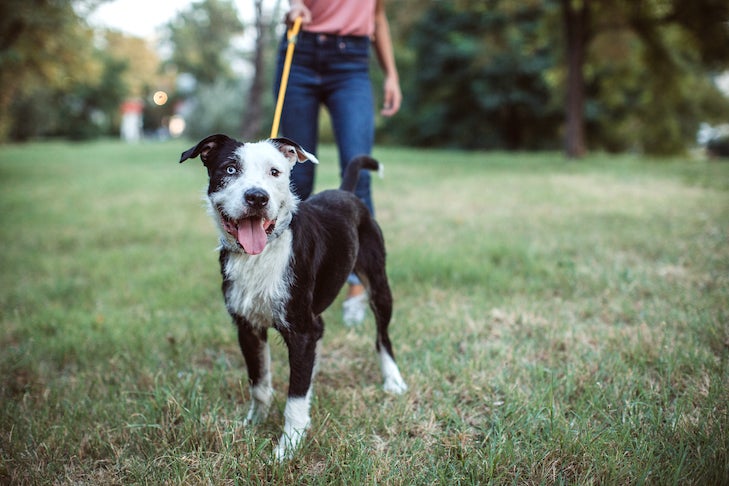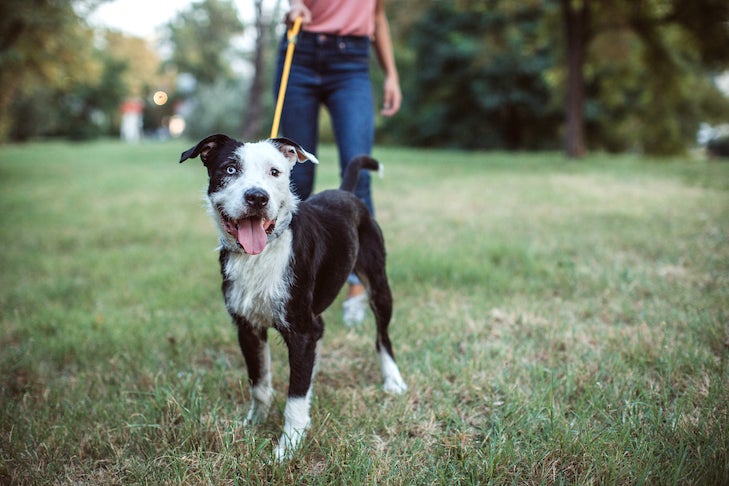What makes a dog lash out in aggression? It’s one of the most critical questions dog lovers face — and failure to find answers can bring heartbreaking consequences, including behavioral euthanasia and even the banning of certain breeds.
While it’s important to know the difference between aggressive and reactive behavior, recent research out of the University of Helsinki has identified some of the most common factors behind aggression in dogs.
Researchers in Helsinki studied more than 9,000 dogs to uncover the most common factors shared by those displaying aggressive behaviors, such as growling, barking, snapping, and biting. For the purposes of the study, the team considered dogs aggressive if they had occasionally (or more often) tried to bite or snap at a person, or if they were habitual growlers. Based on these criteria, around a fifth of the dogs (1,791, to be precise) were classified as frequently aggressive toward people.
The team’s findings? Certain factors are demonstrable indicators of a dog’s likeliness to be aggressive. Those factors include:
The authors of this study stress that their research was not causative — meaning, it doesn’t explain why these factors contribute to dog aggression, merely that they do.
But it’s oh-so-tempting to speculate. While it may be obvious why, for instance, a frightened or suffering dog might be quicker to lash out than a healthy, happy one, other factors are harder to explain. Why, for instance, are smaller dogs more likely to display aggression than larger ones? Hannes Lohi, Professor in Molecular Genetics in the University of Helsinki and Folkhälsan Research Center and an author of the study, speculates that this might be a fear-based defense tactic, since smaller dogs tend to be more fearful. “It may be also that smaller dogs are not trained as well as larger ones,” he notes, “since they can cause less ‘damage’ when aggressive.”
The findings certainly indicate that there’s a genetic component to a dog’s propensity for aggression — but Professor Lohi emphasizes that environmental factors play a crucial role too, meaning that owners have the power to influence their dog’s level of aggression.
So what can owners do with all this information? How can we use it to foster healthy, happy human-dog relationships?
It all starts with research. Since genetic factors play a demonstrable role in a dog’s level of aggression, it’s crucial for all prospective dog owners to really research their dog before committing — and the research should focus as much on the specific breeder and lineage of the dog you’re considering as on the breed itself.
When it comes to predictability in behavior, it is important to note that well-bred purebred dogs from responsible breeders will be more predictable than a dog with unknown origins.
“It is very important to familiarize yourself with the characteristics of the breed of your interest and the behavioral and personality characteristics of the parents of the puppy you plan to acquire,” Professor Lohi notes. Through proper research and working with a responsible breeder, you can create the highest likelihood of a dog whose temperament is well suited to your lifestyle.
Working with a responsible breeder will also help with the other crucial factor in curbing aggression: socialization. Since fearfulness is such a strong indicator of aggression, the study demonstrates that dogs who feel safe and secure around both humans and other dogs are vastly less likely to lash out. Working with a responsible breeder who focuses on healthy socialization in the pup’s earliest weeks will set you and your dog up for success. Then it’s a matter of ensuring that your dog gets plenty of training and time with both humans and other dogs, in puppyhood and beyond.
So what should you do if your pup begins to act out? “If the dog is aggressive, you should observe where and when it happens and intervene,” notes Professor Lohi. “It is important to try to learn the root cause of the aggression, not only the consequences.” And don’t forget: as these new findings suggest, that root cause might be surprising. Since disease, pain, and sensory deterioration increase the likelihood of dog aggression, if your dog starts to act out, it’s worth consulting not only a dog trainer or behaviorist but also your vet.
Ultimately, this research is further proof of the importance of responsible dog breeding and ownership — the perennial, crucial factors in fostering happy relationships between man and his best friend.
AKC is a participant in affiliate advertising programs designed to provide a means for sites to earn advertising fees by advertising and linking to akc.org. If you purchase a product through this article, we may receive a portion of the sale.

